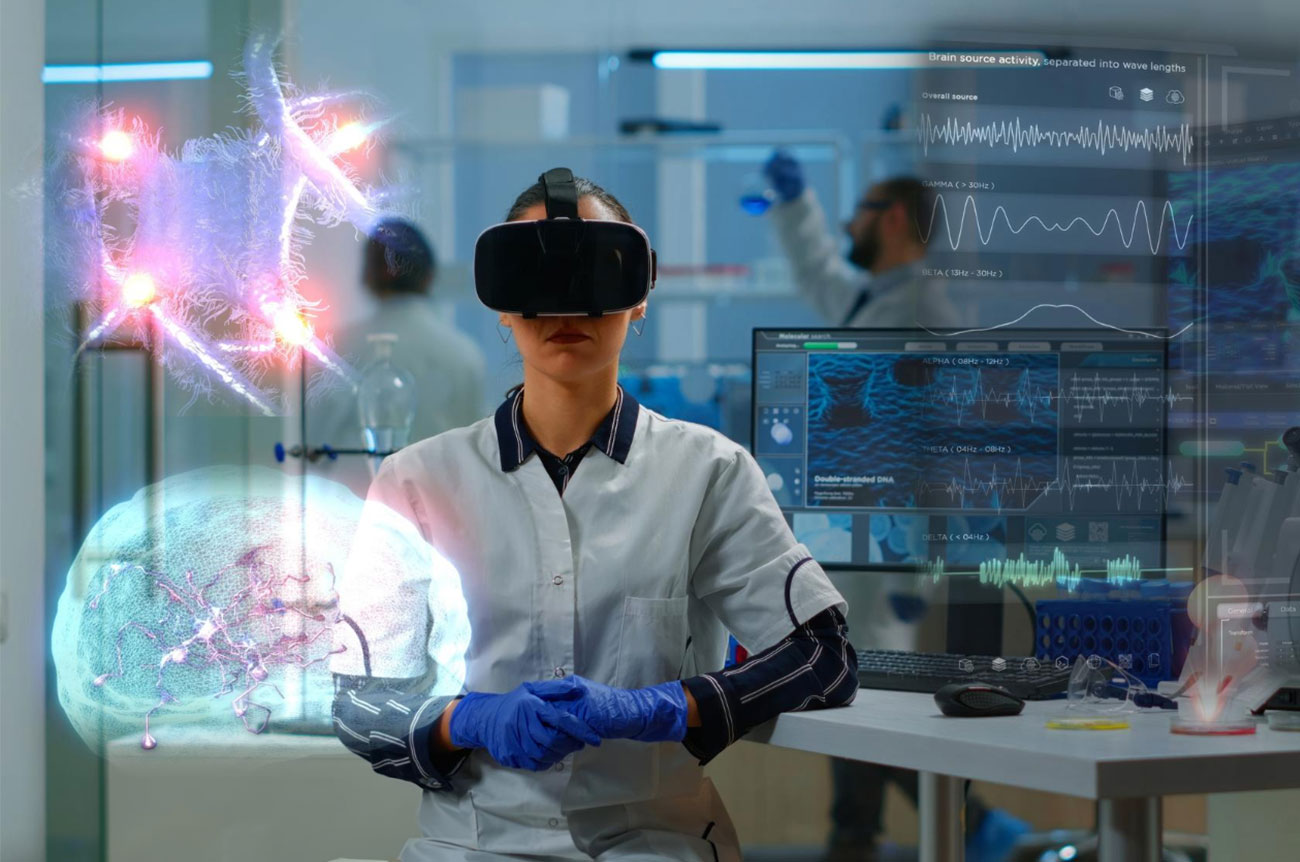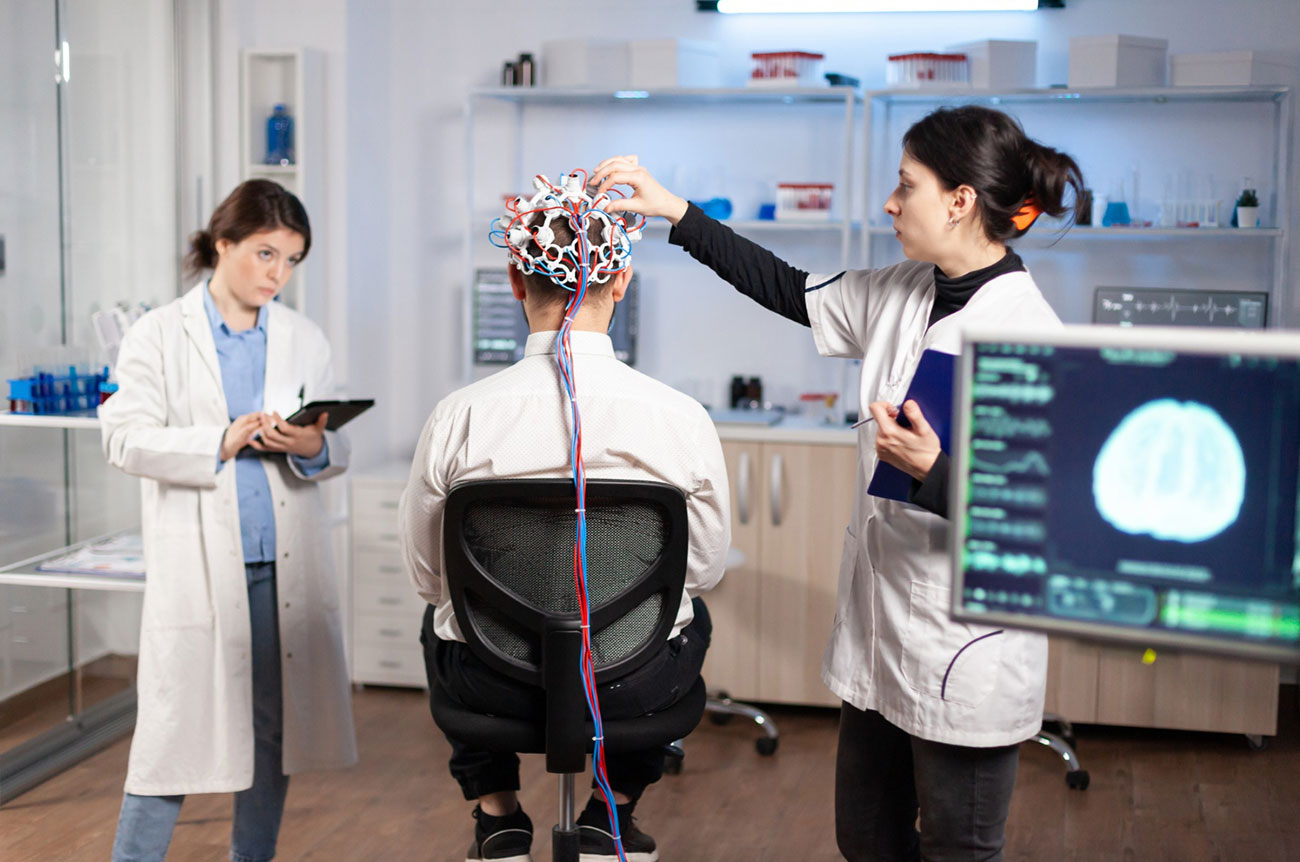
Posted On October 5, 2024
Why AI-Powered Software is Essential for Modern Healthcare in Major Cities Across USA, UK, and Australia
In today’s fast-evolving healthcare landscape, AI-powered software has become a crucial tool for delivering top-notch medical care, especially in major cities across the USA, UK, and Australia. By leveraging advanced technology, healthcare providers can improve patient outcomes, streamline medical processes, and enhance overall efficiency. This blog explores how AI is revolutionizing modern healthcare, transforming diagnosis, treatment, and patient care.
Revolutionizing Healthcare: How AI is Transforming Patient Care
Artificial intelligence (AI) is at the forefront of healthcare innovation, drastically reshaping patient care in ways that were once unimaginable. In busy urban hubs like New York, London, and Sydney, where hospitals face enormous patient loads, AI software helps medical professionals deliver faster and more accurate care. AI-powered tools allow clinicians to predict patient needs, identify potential health risks earlier, and tailor treatment plans more effectively. This shift is transforming how doctors and healthcare teams manage patients, resulting in better, more personalized care.
For example, AI is improving patient monitoring systems, enabling real-time analysis of vital signs, which can notify medical teams of any abnormalities before they become critical. As a result, patients receive more proactive care, reducing emergency room visits and hospital readmissions.
AI in Action: Enhancing Diagnosis Accuracy in Major Cities
One of the most significant ways AI-powered software is making an impact is by improving the accuracy of diagnoses. In major cities, healthcare facilities often see a wide range of cases, making diagnostic errors a concern. AI systems can analyze medical data, including images, lab results, and patient histories, to detect patterns and predict diagnoses more accurately.
In cities like Los Angeles, Manchester, and Melbourne, AI-driven diagnostic tools have become essential for radiology, pathology, and even dermatology. AI software can analyze medical scans like X-rays, MRIs, and CT scans with great accuracy. It can spot small issues that doctors might miss. By supporting doctors in identifying diseases such as cancer or cardiovascular conditions early on, AI is helping save lives.
Cutting-Edge AI Tools Redefining Medical Treatments
Beyond diagnostics, AI is also transforming treatment options. Machine learning algorithms can assess a patient’s condition and predict how they will respond to specific treatments. This allows doctors in major hospitals across Chicago, Birmingham, and Brisbane to prescribe more precise medications and therapies based on an individual’s unique genetic makeup and health profile.
AI-powered robotic surgery systems are another game-changer in healthcare. In leading hospitals across the USA, UK, and Australia, AI-driven robots assist surgeons in performing delicate procedures with enhanced precision, reducing recovery times and improving patient outcomes. Whether it’s heart surgery or cancer treatment, AI technology is ensuring patients receive the best possible care with fewer complications.
Improving Healthcare Efficiency with AI-Powered Solutions
Efficiency is key in modern healthcare, especially in large metropolitan areas where medical facilities face immense pressure to provide timely care to growing populations. AI-powered software is streamlining administrative tasks, improving patient flow, and automating routine processes.
In hospitals across the USA, UK, and Australia, AI systems help optimize scheduling, reduce waiting times, and manage electronic health records more effectively. For example, AI can predict peak patient traffic times, enabling hospitals to allocate resources more efficiently. Additionally, automated systems for billing, data entry, and inventory management free up healthcare professionals to focus on patient care rather than paperwork.
The integration of AI also enhances communication between healthcare providers, ensuring that critical information is shared in real-time, improving collaboration and reducing the risk of medical errors.
AI and the Future of Telemedicine in Global Healthcare
Telemedicine has seen explosive growth in recent years, and AI is playing a pivotal role in its development. In cities like New York, London, and Sydney, where healthcare access is a major concern, especially during times of crisis, AI-powered telemedicine platforms are bridging the gap between patients and doctors.
AI-enhanced virtual consultations allow healthcare providers to offer accurate, remote diagnoses by analyzing patient data in real-time. For patients in rural or underserved areas, telemedicine combined with AI ensures that they receive the same level of care as those in urban centers. With the integration of AI into telemedicine, patients can now access 24/7 healthcare support, receive personalized treatment recommendations, and get follow-up care more conveniently.
As AI continues to evolve, the future of telemedicine looks promising. AI-driven chatbots, virtual health assistants, and automated diagnostic tools will become commonplace, allowing patients to manage their health more proactively and efficiently.

The Role of AI in Tackling Healthcare Challenges in Urban Areas
As urban populations grow, healthcare systems are facing unprecedented strain. Major cities in the USA, UK, and Australia are dealing with overcrowded hospitals, limited healthcare resources, and the need for rapid diagnosis and treatment. AI-powered software offers a solution by streamlining administrative processes, reducing wait times, and enhancing the accuracy of medical procedures. AI algorithms can analyze large datasets to predict disease outbreaks, manage patient flow, and optimize resource allocation, easing the burden on overstretched healthcare facilities.
AI-Driven Healthcare: A Game-Changer for Hospitals
Hospitals in urban areas are increasingly turning to AI to enhance their operations. AI-driven healthcare systems can assist in early diagnosis through advanced imaging technologies, identify patterns in patient data to predict potential complications, and automate routine tasks to free up time for medical professionals. This game-changing technology is revolutionizing how hospitals operate, improving patient outcomes, and reducing human errors. By incorporating AI, hospitals can provide higher-quality care, even with limited staff and resources.
How AI Software is Addressing Critical Healthcare Shortages
Staff shortages in the healthcare sector are a major concern in cities across the USA, UK, and Australia. AI-powered software is helping to mitigate these shortages by automating tasks that would typically require human intervention. From scheduling appointments and managing patient records to analyzing test results, AI allows healthcare professionals to focus on more complex and critical care tasks. Virtual assistants, powered by AI, can also support patients remotely, reducing the need for in-person consultations and easing the burden on healthcare workers.
Unlocking New Possibilities in Medical Research with AI
AI is unlocking new frontiers in medical research. By analyzing vast datasets from clinical trials and patient histories, AI systems can identify trends, predict outcomes, and even suggest new treatment methods. In major cities with leading research institutions, AI is being used to accelerate drug discovery, enhance the understanding of diseases, and develop innovative therapies. The ability to process and interpret data faster and more accurately than ever before is transforming medical research, leading to breakthroughs that can improve healthcare for millions of people.
Why AI is Key to Personalized Patient Care in Modern Cities
Personalized healthcare is becoming a reality, thanks to AI. By leveraging machine learning algorithms and big data, AI software can tailor treatments to the unique needs of each patient. In cities where healthcare systems must cater to diverse and large populations, this personalized approach is crucial. AI can analyze an individual’s medical history, genetics, lifestyle, and even social determinants of health to create customized treatment plans that are more effective and targeted. This level of personalized care ensures better patient outcomes, reducing the need for trial-and-error in treatments.
Reducing Healthcare Costs Through AI-Powered Innovations
Healthcare costs are a significant concern for both governments and individuals in urban areas. AI-powered software offers a cost-effective solution by improving operational efficiency, reducing medical errors, and enabling preventative care. By automating administrative tasks and optimizing the use of resources, hospitals can reduce overhead costs. AI-driven predictive analytics also help in early detection and prevention of diseases, minimizing the need for costly treatments down the line. In cities where healthcare systems are under financial pressure, AI is an essential tool for delivering quality care at a lower cost.
Exploring the Global Impact of AI on Healthcare Systems
The global impact of AI on healthcare is becoming increasingly evident. In the USA, UK, and Australia, AI is helping to bridge the gap between growing demand and limited resources. From improving diagnostic accuracy to enhancing patient engagement, AI is reshaping healthcare systems and setting new standards for care delivery. The lessons learned from implementing AI in these major cities are also being applied worldwide, influencing healthcare policies and fostering global collaboration in medical research.
Suggested reading: Why Healthcare IT Consulting Firms Are Essential for Digital Transformation
Conclusion
The integration of AI-powered software into healthcare systems across the USA, UK, and Australia is not just a trend—it’s a necessity. From enhancing diagnosis accuracy to improving patient care and operational efficiency, AI is revolutionizing modern healthcare in major cities. As technology continues to advance, we can expect even greater breakthroughs, transforming the way healthcare is delivered and ensuring better outcomes for patients across the globe.
For more insights on AI-driven healthcare solutions, visit smartdatainc.com
